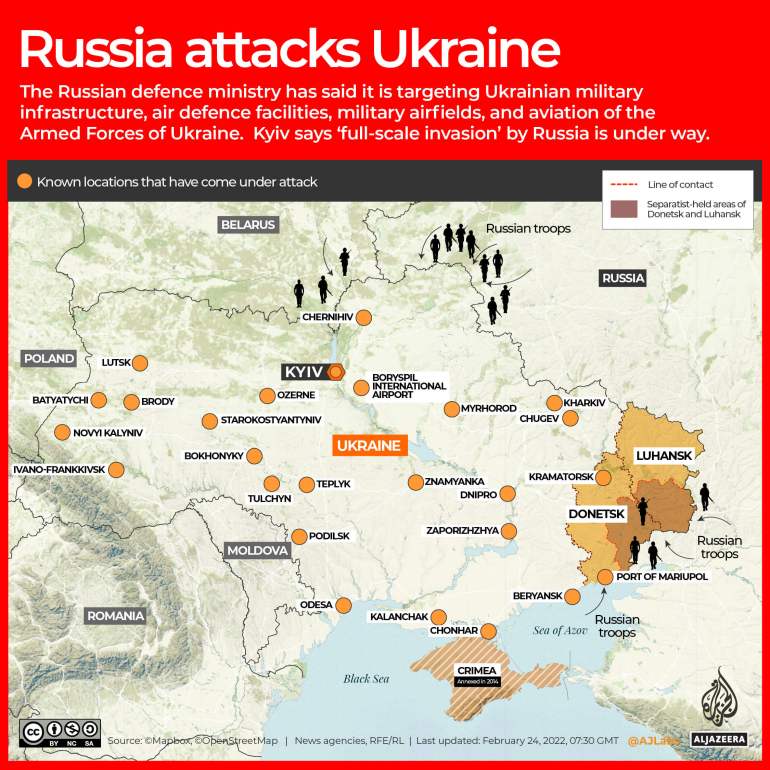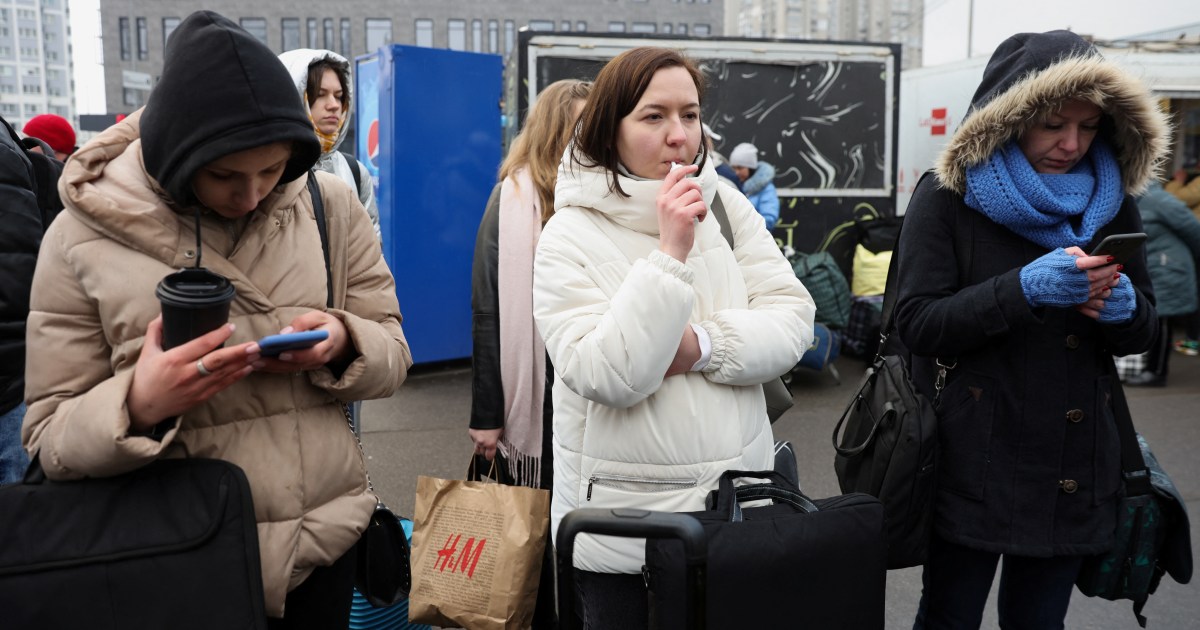Panic, fear and stoicism in Ukraine as Russia invades
Russia’s invasion of Ukraine has triggered panic and fear among many Ukrainian civilians, as they scrambled to flee or prepare for the escalation in violence, although many also remained stoic even as missiles fell on multiple cities and Russian forces also attacked from land and sea.
Russian attacks on Ukraine began on Thursday morning after President Vladimir Putin announced a full-scale military operation.
Russian hit several Ukrainian cities with missiles, including the capital Kyiv, as Ukraine reported columns of troops moving across its borders into the eastern Chernihiv, Kharkiv and Luhansk regions, and landing by sea at the cities of Odesa and Mariupol in the south.
Casualties have been reported in some cities, but the numbers could not be independently verified.
Ukrainian President Volodymyr Zelenskyy said declared martial law and he called on all citizens who are ready to defend the country from Russian forces to come forward, saying Kyiv would issue them with weapons.
Al Jazeera’s Andrew Simmons, reporting from Kyiv, said the sound of explosions on the edge of Ukraine’s capital and air raid sirens prompted some residents to panic and flee for cover.
“The whole sky was awash with red and orange when these missiles struck – some of which were apparently cruise missiles,” he said.
“It would appear that military installations have been the target [of the attack] – there have been missile attacks and the number of casualties and level of damage is unclear at the moment,” Simmons said.

Although local authorities urged Kyiv residents to stay at home, long queues of cars formed on main roads leading out of the city and people sheltered in the city’s underground stations and other safe places, according to local media.
Iliya Kusa, an international relations analyst at the Ukrainian Institute for the Future, told Al Jazeera from the capital that “people are leaving Kyiv is partially true but it is not a panic wave”.
“The situation in Kyiv, where I am located now, is more or less stable. There is no panic, there is no critical problems right now. The public transport is working as usual. The only thing that changed actually is that … schools, universities and kindergartens are closed and hospitals are on high alert since the parliament introduced martial law.”
She said many people were queueing to get money from ATMs and to stock up on basic products.

Meanwhile, planes were grounded across the country as Ukraine closed its airspace to civilian flights.
The Russian military said Ukraine’s air defences and bases have been destroyed while numerous civilian airports were bombed.
There were also scenes of panic and confusion in eastern Ukraine as the Russian invasion unfolded.
Russian-backed separatists in the east, who have been fighting Ukrainian forces since 2014, said they had captured two towns, the RIA news agency reported.
The mayor of Mariupol has claimed that three of the eastern Ukrainian city’s civilians had been killed and six others injured amid Russia’s invasion. Vadym Boychenko told a news conference that Russian forces had attacked the city’s airport and a village nearby.
Al Jazeera’s Liz Cookman, reporting from Mariupol, said large queues had formed at cash machines and petrol stations as people feared electricity and internet outages.
But she said despite air raid sirens sounding throughout the city, packed buses were still carrying people to work and school.
Freelance journalist Sara Cincurova told Al Jazeera she had been on a train headed for the city of Kramatorsk in eastern Ukraine when news of Russia’s invasion broke.
“Everybody was panicking … there was an old man asking what was going on and the train attendant told him ‘the war has just begun’,” Cincurova said.
“There was another passenger, an old lady whose son is in the army, who started crying. Other people were wishing each other good luck,” she said.
Later, reporting from Kharkiv, Cincurova said thousands of people attempting to leave the city were waiting at the railway station.
Some were heading east to places nearer to the most intense fighting so they could be with their families, while others were headed for what they hoped was the relative safety of western Ukraine.
“Some are making the impossible choices of whether to go to Kyiv or go to see families and to go to other cities,” she said.
Others in eastern Ukraine were more blase about the Russian invasion.
Anastassia, 18, told Cincurova that many young people in the region had become used to fighting and the sounds of shelling.
“I have a friend who is a musician and plays the piano. When he hears shelling in the background he says ‘oh it’s a new tone, it’s a new sound for my music’.”




